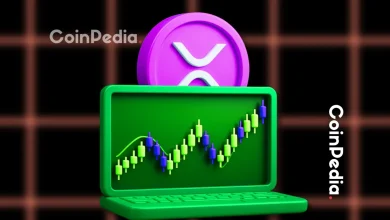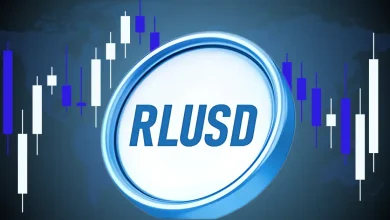
Receipts Depository Corp (RDC) is reportedly planning to launch XRP-backed securities, similar to American DRs.
These XRP depository receipts would represent direct ownership of XRP, unlike potential XRP ETFs.
RDC aims to bypass SEC registration requirements, and the securities will be cleared by the Depository Trust Company for efficient transactions.
Institutional interest in XRP is growing fast, and the latest developments suggest something big could be on the horizon. Receipts Depository Corp. (RDC) – a company that already offers Bitcoin and Ethereum-backed securities – now seems to be eyeing XRP as its next big move.
But why XRP? And what exactly is RDC planning? A recent report hints at the launch of XRP-backed securities. If true, this could be a game-changer for XRP’s adoption in traditional finance.
Here’s what we know so far.
Understanding RDC’s Plan
A recent report suggests that RDC is preparing to launch XRP-backed securities in the form of depository receipts. These receipts work similarly to American Depositary Receipts (ADRs), which represent shares of foreign companies and can be traded on U.S. stock exchanges like regular stocks.
Limited to Institutional Buyers
RDC’s XRP securities will be offered exclusively to qualified institutional buyers (QIBs). This approach allows RDC to take advantage of certain exemptions in the Securities Act of 1933.
Under U.S. law, most securities must be registered with the Securities and Exchange Commission (SEC) before they can be sold to the public. However, there’s an exception for securities sold only to QIBs, meaning RDC does not need SEC approval for its XRP securities.
- Also Read :
The report also states that RDC’s XRP securities will be cleared through the Depository Trust Company (DTC) – a clearinghouse that speeds up and simplifies securities transactions. This ensures faster and more efficient trading, making it easier for institutional investors to buy and sell XRP-backed securities.
XRP Depositary Receipts vs. XRP ETFs
With growing speculation about XRP Exchange-Traded Funds (ETFs), many investors are wondering:
Are XRP Depositary Receipts better than XRP ETFs?
Here’s the key difference:
- XRP Depositary Receipts mean you directly own the XRP they represent.
- XRP ETFs work differently—investors own ETF shares, which are backed by XRP but can only be redeemed for cash, not XRP itself.
The coming months may bring more clarity on how big players are positioning themselves in the XRP market.
Never Miss a Beat in the Crypto World!
Stay ahead with breaking news, expert analysis, and real-time updates on the latest trends in Bitcoin, altcoins, DeFi, NFTs, and more.
FAQs
An ADR is a U.S.-traded security representing shares of a foreign company, allowing investors to buy foreign stocks on U.S. exchanges easily.
XRP-backed securities are investment products where depository receipts represent direct ownership of XRP, similar to American Depositary Receipts (ADRs).
XRP depositary receipts grant direct XRP ownership, while XRP ETFs hold XRP and issue shares, which are redeemable for cash, not actual XRP.








